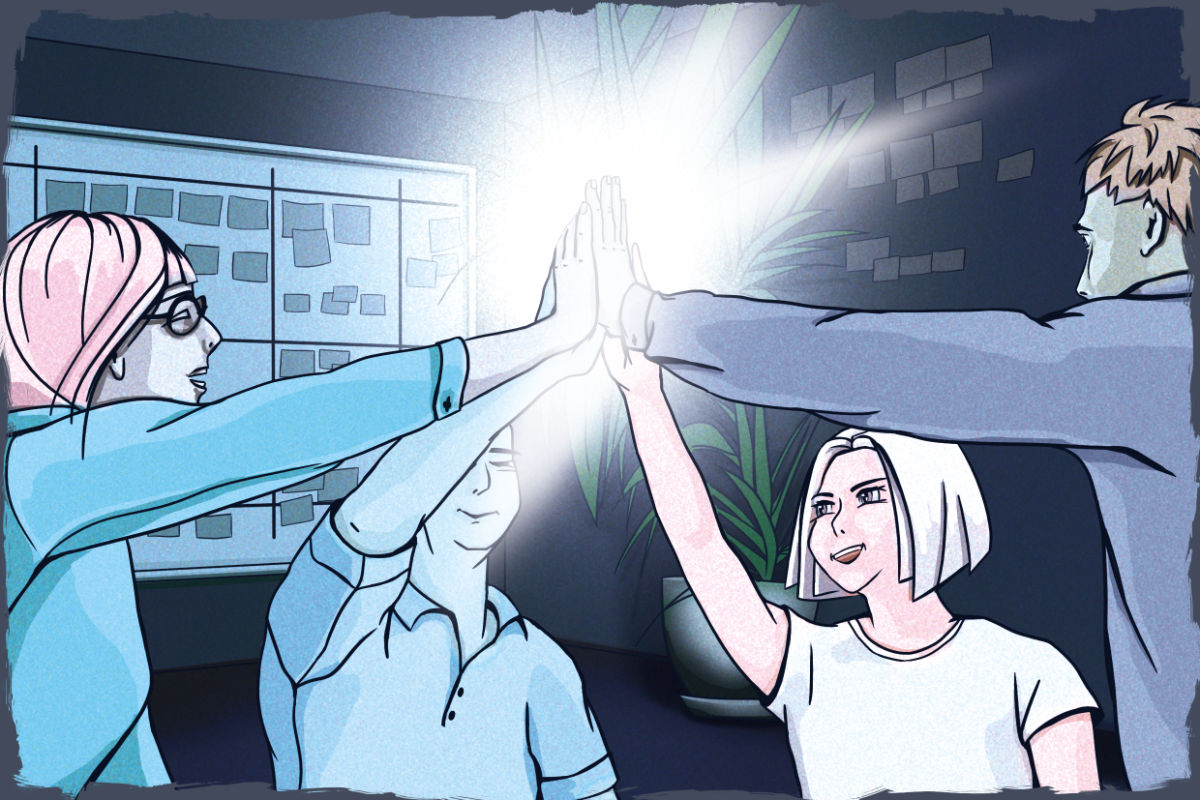I was fascinated with agile software development from the moment I first heard about it in an eXtreme Programming course at University. And when I was a developer in a Scrum team for the first time, I decided that I have to become involved in this “agile” thing / community.
Because of that moment almost 10 years ago, I started to learn more about Scrum, Kanban, Software Craftsmanship and other “agile” stuff. Because of that moment, I write on this blog, give conference talks and try to help people become better at developing software.
Agile Coaching - Not for me?
And then it finally paid off: A company asked me to be a Scrum Master / Agile Coach for two of their development teams.
I was there for just about 1.5 years, and I learned so much! I was not only their Scrum master, I was also responsible for coordinating with external departments (mainly Testing and Operations).
We transformed the approach of the team from Scrum towards Kanban. I worked with their product owners, business analysts and developers to introduce specification by example / agile acceptance testing. And some more…
It was a great experience, but after some time I started to miss writing software. I started to miss discussing about software architecture and creating software designs together with my teams. I realized that doing “only” agile coaching was not the right thing for me…
Player Coach?
The next few clients hired me to do different things for them. They hired me as a software architect, as a developer or as a specialist to introduce a new technology.
And while I really enjoy those things, when I come to a new client, I also recognize things that could be improved - Things about how people work together, how the client handles requirements and defects, and so on. “Process” stuff.
So, with those clients, I tried to help them improve their process while having a different role on the team - By discussing with team members and managers, and by telling them stories about what we did in other teams I worked with.
Sometimes this worked better - some people would listen to me - and sometimes it did not work so well. But I did not think about it too hard.
Agile Coaching and Technical Coaching
I did not think about it too hard until Adrian Bolboaca tweeted:
I believe Agile Coaching is incomplete without Technical Coaching. You can improve the process, but after you need to improve the skills.
— Adrian Bolboaca (@adibolb) 28. März 2017
And I thought: Yes, that’s it. We have to convince companies they have to do both: Getting better at working together (e.g. by getting agile coaching) and getting better at what they are actually doing (e.g. by getting training or technical coaching).
That tweet also started a series of events, leading to, among other things, this blog post. Gitte Klitgaard tweeted:
@adibolb I agree - I wish more would remember that.
— Gitte Klitgaard (@NativeWired) 29. März 2017
Would love to work together with more technical coaches
And then Gitte, Markus Tacker and I had a video call where we discussed what we could do to improve the situation. Basically, we want to work together as agile coaches and technical coaches to provide a better experience for clients.
Going Forward
First, we want to raise awareness for the topic. We want to start planting some seeds, so maybe more companies will realize that they can benefit from agile coaching and from technical coaching.
- Each of us will write a blog post, you are currently reading my take on the situation.
- We will speak at conferences about this topic. I will give a talk called “Technical Excellence” at several conferences in autumn. And we want to create conference talks together.
- We will talk about this topic to other people in person.
</ul>
We think that a major difficulty here is that many companies - or, actually, people in those companies - think they do not need any outside help.
- The current way we do things works, so why change anything? Well, the current way of doing things is often merely sufficient. And it might stop being sufficient faster than you think...
- Developers and testers love to try / learn things on their own. Some love to tinker and learn, and this can work very well. But it often is less efficient than getting some help. And often teams do not see certain improvement opportunities because they have developed some blind spots over the years.
- Management sometimes does not want to admit that something needs improving, because the way things are now happened on their watch. They think admitting they need coaching means admitting that they did something wrong. So they prefer continuing the old way, without getting outside help. </ul> We also want to expand our network, so we can bring people looking for coaches and people who provide coaching together. And we need your input here. What do you think about agile coaching and technical coaching? Where could you need some help? Where could you help others? Let’s have a short video call or an email conversation: Contact me!

